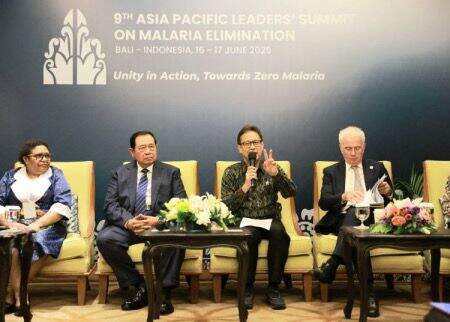Jakarta – The Indonesian Ministry of Health (Kemenkes) has prepared a comprehensive strategy to eliminate malaria nationwide, with a special focus on the Papua region.
Minister of Health Budi Gunadi Sadikin, speaking at the 9th Asia Pacific Leaders’ Summit on Malaria Elimination in Bali on Tuesday (June 17, 2025), emphasized that success in Papua would be the key to achieving Indonesia’s target of becoming malaria-free by 2030.
“If we can eliminate malaria in Papua, then we can eliminate it across all of Indonesia,” said Minister Budi in an official statement quoted by InfoPublik on Thursday (June 19, 2025).
Out of 514 districts/cities in Indonesia, 476 (around 79 percent) have already reached elimination status. However, over 93 percent of the national malaria burden remains concentrated in Papua, a region facing complex geographical, social, and accessibility challenges.
To address these challenges, the Health Ministry is prioritizing several key approaches. The first is environmental-based prevention to reduce mosquito breeding grounds.
The second is community protection through the distribution of insecticide-treated bed nets. Minister Budi explained that with support from the Global Fund, around 3.3 million bed nets have been distributed regularly to communities, which plays a crucial role in prevention.
The third is innovation through Mass Drug Administration (MDA), a method of providing preventive malaria medication to entire populations in certain areas. A pilot MDA program conducted in two cities showed a 50 percent reduction in malaria incidence.
However, the program’s high cost requires ongoing evaluation in terms of efficiency and sustainability.
In terms of curative measures, Minister Budi ensured that malaria treatment is widely available. He stressed the importance of early detection and prompt treatment for anyone infected with the disease.
He also highlighted the significance of cross-border cooperation in malaria elimination efforts, noting that mosquitoes do not recognize administrative boundaries. As such, two key agreements are expected to result from the summit.
First, a commitment from all governors in Papua to pursue the 2030 malaria elimination target. Second, the Ministry of Health is signing a joint action plan with the government of Papua New Guinea, as both regions share the same landmass.
“These are two concrete outcomes we hope to achieve from this forum,” said Minister Budi.
As background, malaria is one of four major mosquito-borne infectious diseases, alongside dengue fever, Japanese encephalitis, and chikungunya.
Although malaria-related deaths in Indonesia average around 130 per year, the disease remains the deadliest among the four.
“The World Health Organization (WHO) has set a global malaria elimination target for 2030. For Indonesia, the main challenge lies in Papua. But with the right strategies and cross-sectoral support, I am confident we can reach that goal,” Minister Budi concluded.

